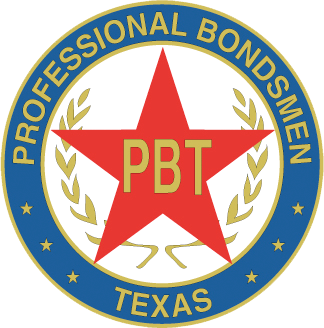FREQUENTLY ASKED QUESTIONS
Yes, just call us at 979.821.2663. Please do not feel uncomfortable when calling our office, as we know that most people are not familiar with the bail bonding process. In fact, the majority of people we work with have never had to deal with bail bonds. We have a very experienced team of professional bail agents ready to answer any questions you may have.
We are happy to guide you throughout the entire process, and we will not let you go without feeling comfortable with how the legal process works when bailing a friend or loved one out of jail.
A bail bond is the document that is presented to the court to secure the release of a defendant who is in custody, and to ensure the appearance of the defendant at all required court hearings.
A judge or magistrate normally sets the amount of bail for each defendant. They will consider many things in this process including the nature and seriousness of the charges, the weight of the evidence, the defendants character and history as well as other factors to determined the overall potential flight risk of the defendant. Additionally, many states and counties also have what is called a bail schedule, which is a set of guidelines comprised of bail amounts and ranges for specific crimes.
The bail bond premium is the cost to post a bail bond, which in many states is restricted by law to 10% of the bond amount. For example, if a bond is set at $10,000, a $1000 premium would be paid to the bail bond company in exchange for posting the bail bond and releasing the defendant from custody. The bail bond premium is usually paid by cash, check, or credit card. The premium amount is non-refundable and fully earned upon release of the defendant, regardless of the final disposition of the defendant’s case. Paying a bond premium to a bail agent is usually a more affordable option than posting a cash bond.
If a defendant fails to appear in court, the court issues a bench warrant for that person’s arrest and they are considered a fugitive. Generally, the bail agency is authorized by the court to arrest the individual.
This is the contract that exists between the indemnitor(s) and the bail agent. The agreement generally includes the following: the name and contact information of the indemnitor, the date the bail bond was executed, the bond amount, the criminal charge(s), and the court in which the defendant is required to appear. Upon signing this agreement, the indemnitor is assuming the responsibility for ensuring that the defendant appears for all of his or her court appearances. The agreement also states that if the defendant fails to comply with the conditions of the bail bond, the collateral placed as security for the bond may be seized by the bond agency in order to pay the bail amount to the court in the event of forfeiture. The signature of the indemnitor is required to make this agreement binding.
An indemnitor/guarantor is an individual, usually a friend or family member of the defendant, who agrees to indemnify the bail agent against a loss.
Sometimes the bail agent will require collateral to secure the guarantee of the bond and ensure the defendant’s appearance in court. Collateral is anything of value that is pledged to secure the bond, such as cash, property, jewelry, etc. Upon complete resolution of the defendant’s case and payment of all premiums in full, the collateral is returned to the indemnitor.
In most cases, collateral is returned to the defendant upon discharge or exoneration of the bail bond.
Acceptable forms of payment are typically cash or credit card. In some cases, Pay Pal options may be available as well as payment by check. Depending upon the agent and location, payment plan options may be available.



